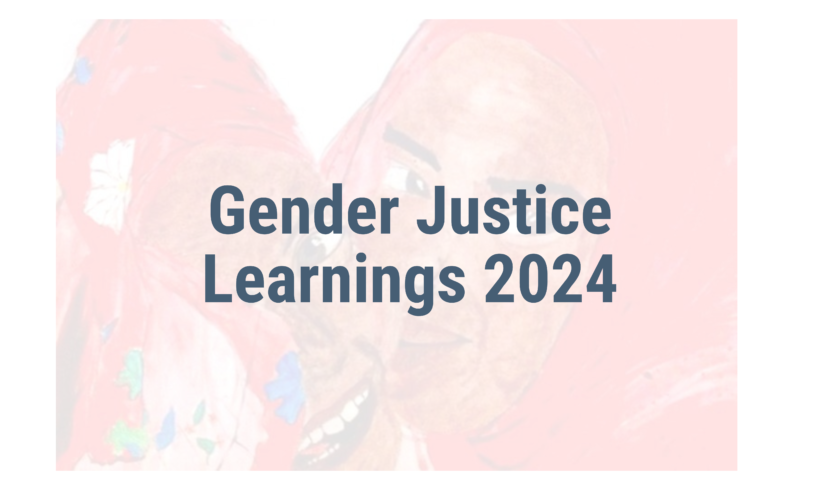Gender Justice Initiative
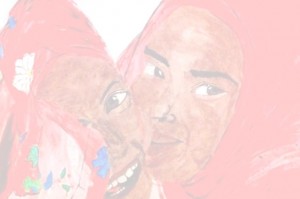 The Gender Justice Initiative (GJI) is a collaborative group formed by civil society representatives and funders, who get together in different spaces to discuss and strategize on ways of spreading the word of the importance of broadly incorporating the gender lens into the various processes within philanthropy.
The Gender Justice Initiative (GJI) is a collaborative group formed by civil society representatives and funders, who get together in different spaces to discuss and strategize on ways of spreading the word of the importance of broadly incorporating the gender lens into the various processes within philanthropy.
Although the Gender Justice Initiative has been part of EDGE since many years, the Just Giving 2016 marked the official launch of the Initiative, comprised of a core group of leaders from feminist, women’s rights, and progressive philanthropic institutions working across varying areas of practice, grantmaking models, and geographic regions. The initiative has been meeting at the EDGE Annual Conferences to advance strategies and feminist conversations needed to bring gender justice to the forefront of philanthropy. The group has been reflecting on how it can collectively support the transition towards a more ecologically sustainable and socially just world while keeping gender justice at the forefront of that work, not as a separate issue, but as a cross-cutting, intersectional strand – integral to all our work.
It recognizes that while many social justice grantmakers understand the importance of this work, few have the tools to incorporate gender justice politically, practically, and holistically into their work. The convergence of these ideas at the conference helped spark teachable insights and develop a clear vision of a philanthropy imbued with gender inclusive practices.
While the EDGE conference acts as a catalyst for these conversations, the initiative remains active between conferences – ensuring that collaborative spaces are fostered and sustained in an ongoing way. Beyond the conference, group members continue to build on the experience and practice of gender justice organizations and highlight the impact of their models to develop tools that would enable others in philanthropy to deepen the scope and impact of their grantmaking.
*artwork by: Patricia Kunrath
Initiative Co-chairs
The Gender Justice Initiative agendas and focuses for 2024 will be shaped by the following co-chairs composed of members and movement partners. One of EDGE’s core focus is working with movements. That is why, initiatives have two co-chairs, one representing funders and another representing movements, to help guide the agenda-setting, serve as a sounding board for the EDGE secretariat and co-facilitate co-creation meetings. Co-chairs also host in-person gatherings and delegations to key meetings and conferences. They also take a lead in bi-annual intersectionality meetings aimed at ensuring all thematic programs at EDGE are in conversation to build collective systemic change narratives.
- Diana Medina | Fondo Semillas
- Massan d’ALMEIDA | Fonds XOESE pour les Femmes Francophones
- Nikita Patodia | Just Associates (JASS)
- Rebeca Moreno | Aúna
Get Involved
Gender Justice Initiative Meetings
These regular meetings provide a space for participants to present ideas, projects and to promotes spontaneous initiatives and collaborations. Each month, we gather around co-organized conversations to spark knowledge sharing and more aligned practices in our network.
Resources on gender justice to deepen funder engagement
EDGE’s Gender Justice Initiative would like to encourage representatives of progressive philanthropy to deepen their engagement with gender justice. To do so, we decided to gather resources that may be useful for an audience interested in gender justice and make them accessible in partnership with GJI participant GIFE .
These resources are useful for a different audience: those engaged in different sectors (e.g. climate, disability), those who wish to deepen their engagement, those who are new to it all.
Sample Resources
- Accessible Guide To Gender Justice
- Disability Rights
- Where is the Money?Online Resource Toolkit
- Our Rights, Our Safety: Resources for Women Human Rights Defenders
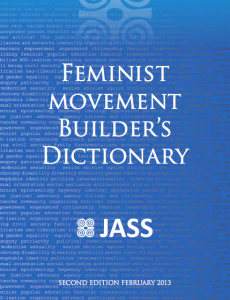 Would the funder benefit from an accessible guide to gender justice and feminist frameworks?
Would the funder benefit from an accessible guide to gender justice and feminist frameworks?
JASS have developed a feminist movement-builders dictionary with clear explanations, here.
Is the funder interested in disability rights and the intersection with women’s rights?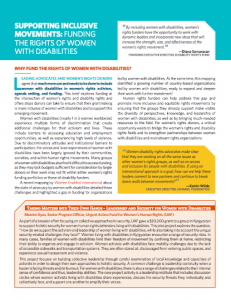
Channel Foundation has a donor briefing including steps funders can take to make their funding more inclusive.
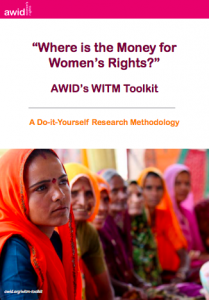 Is the funder wanting to conduct research on where the money is for women’s rights (to inform their own funding, or to support their grantees?)
Is the funder wanting to conduct research on where the money is for women’s rights (to inform their own funding, or to support their grantees?)
AWID created a Where is the Money? online resource toolkit to guide this process, here.
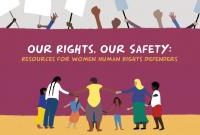 A 5-module toolkit for women activists and defenders everywhere produced by JASS (Just Associates).
A 5-module toolkit for women activists and defenders everywhere produced by JASS (Just Associates).
The toolkit was commissioned by the Special Rapporteur on Human Rights, Michel Forst, and draws on his recent report on women human rights defenders (WHRDs). Offering a feminist popular education methodology, the toolkit is accessible, engaging, and useful, allowing any group of activists/defenders to assess risk, power dynamics, individual and collective vulnerabilities and forms of resilience, and to strengthen approaches to collective protection.
The toolkit is also available in Spanish “Caminando más Seguras: Saberes para Nuestra Protección”
- Supporting Women′s Fund
- Gender Lens and how to use it
- Ethical Investment
- Human Rights Defenders - gendered aspects
Is the funder new, or does it wish to support grassroots groups? Does the funder need an argument for why they should be supporting women and gender justice, most specifically the value in supporting Women’s Funds?
Mama Cash produced a publication that makes the case for supporting women’s funds, here.
Does the funder not ‘do’ gender? Could they explore their issue (such as disability, migration, labour rights, and climate change) through a gender lens?
EFC and Mama Cash have a publication on what a gender lens is and how to use it, here.
Is the funder interested in ethical investment? Are they interested in investing with a gender lens?
If so, Equileap offer 3 tools: Company Reports, the Gender Impact Dashboard and a family of indices (US, Europe and Global) for people to be able to invest with a gender lens. They also offer contact with asset managers that use Equileap’s screening tools to invest their clients’ money with a gender lens.
Does the funder support human rights and specifically human rights defenders, and want guidance on the gendered aspects of this?
This report (p11) offers insight into why a gender perspective is needed to analyze the situation of violence against Women Human Rights Defenders, and this is the warning on why fundamentalism and populism pose deepening threat to women defending human rights.

